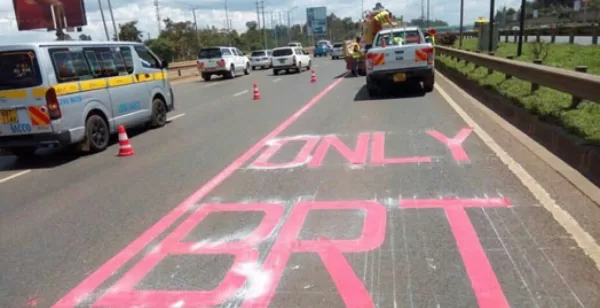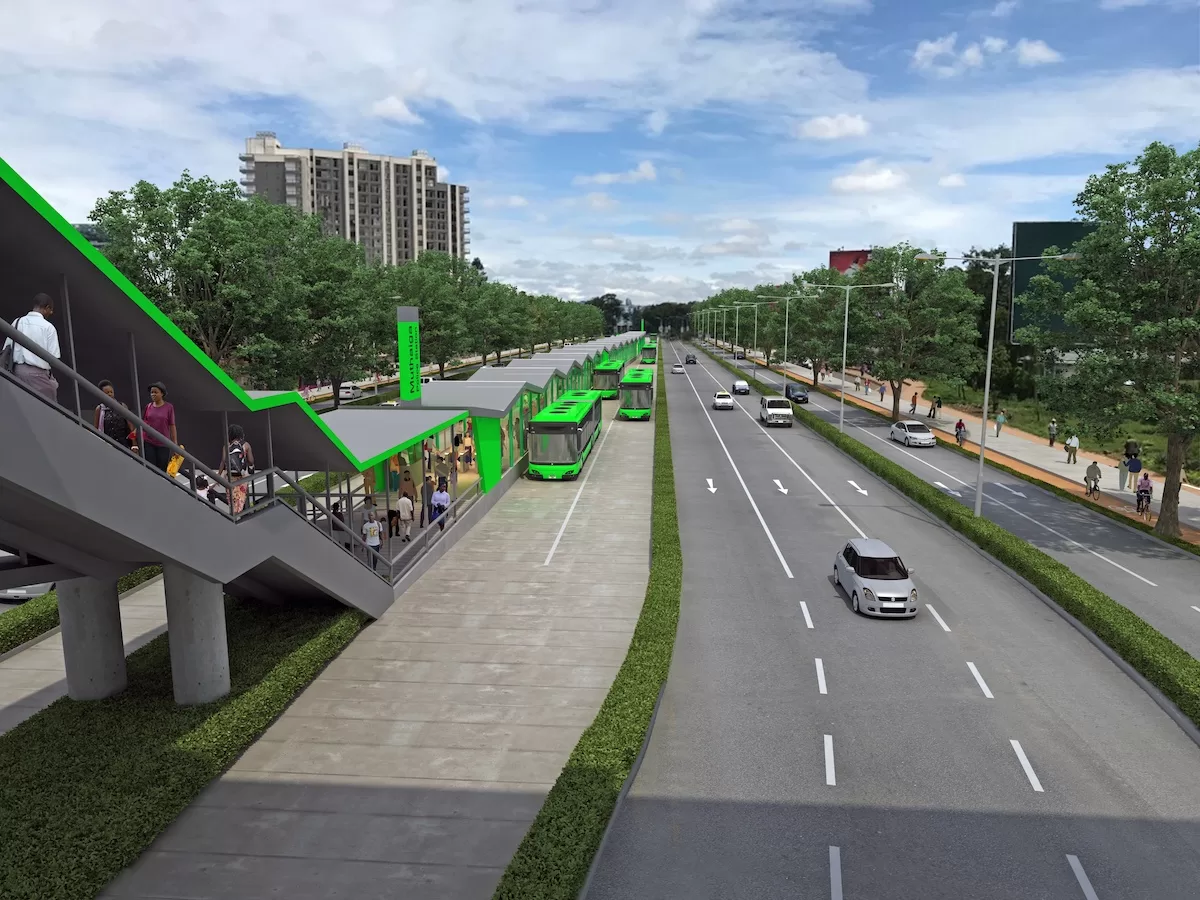The Kenyan Cabinet has approved a Ksh43.4 billion project that will revolutionize public transport in Nairobi County through the Clean Bus Rapid Transit (BRT) System. Following a €320 million financing package, the Cabinet will connect Ngong Town and Tala in an effort to enhance public transport reliability. The Clean Bus Rapid Transit (BRT) system will have a cashless fare collection feature, something that is quite rare in the county, and real-time passenger information. Additionally, the system, managed by the Nairobi Metropolitan Area Transport Authority (NaMATA) will feature GPS-based vehicle tracking and park-and-ride facilities. “By 2035, Core Line 3 is projected to transport 357,000 passengers daily using electric buses,” stated a press release from the Cabinet.
The Clean BRT Nairobi routes
Construction will take place in phases, with the first covering 12 kilometres from Kenyatta National Hospital along Juja Road to Dandora. Following completion, the second phase will connect Dandora to Tala and Kenyatta National Hospital to Ngong. Financiers for this project include the EU, The Agence Française de Développement (AFD) and the European Investment Bank.
“This funding represents a significant boost to Nairobi’s transportation infrastructure. The Nairobi Clean BRT project isn’t just about buses; it’s about transforming how our people live, work, and move. Cleaner, safer, and more efficient transportation will uplift the livelihoods of millions of Nairobians. This is a historic moment for our city,” Nairobi Governor Sakaja Johnson stated.

Also Read Construction of the Nairobi-Malaba Expressway
Nairobi Government’s transport plan
The Nairobi County government has a larger plan that includes improved pedestrian infrastructure, integrated smart technology helping traffic flow and non-motorised transport options. The BRT system is part of the government’s efforts to reduce commute times significantly in addition to reducing the county’s greenhouse gas emissions.
Even with all the benefits surrounding Nairobi Clean BRT project, there are some unpleased with the process surrounding the project. Particularly, contractors who had completed part of the project amounting to Kshs 2.9 billion by December last year and only received compensation worth 1 billion. The project stalled for a while and there have been increased costs due to interest from overdue payments.

Leave a Reply